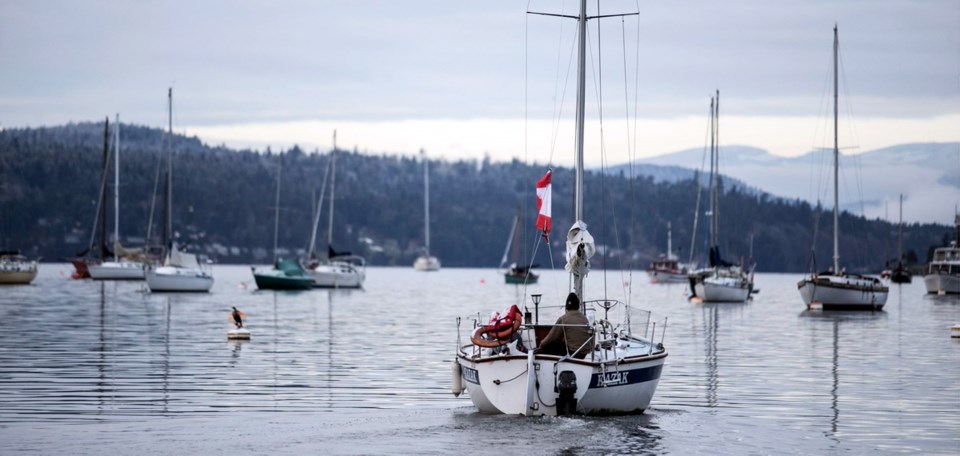There are many different reasons people choose to live aboard their boats — for the adventure, the challenge, the affordability compared to the cost of housing ashore.
Some have spent their entire lives working afloat and don’t see why they should move ashore now that they have retired. Solitude can be a big part, as is the sense of freedom that comes with living on the water.
I think many would be surprised at the diversity of our waterborne neighbours: There are doctors and lawyers, students and tradespeople. Single mothers raising families and retired mariners. Well-off and poor alike, just like any community.
Yet to many living along the shore, we are all just those bums on the water. They’ve never met us, but perceive us as troublemakers, freeloaders, drunks and thieves, fouling the water and living on wrecks doomed to sink. We are a burden rather than an asset to the community.
So I think that some would be surprised to learn of my Queen’s Diamond Jubilee medal, awarded to me by the lieutenant-governor in recognition for my years of international antipoverty volunteer work with RESULTS Canada. Or that my wife is spending her entire career as a social worker caring for the elderly suffering from cognitive disabilities.
We’ve raised foster kids, as well as our own two children. I call myself a writer and have had one novel published, although I spend a lot more time restoring old Volkswagen campers. My wife loves to sing in her all-women’s choir. We think we’re good people, but not exceptional, and we liveaboard in Brentwood Bay.
Brentwood Bay has become the most recent site of conflict, as the municipality has opted to apply for the authority to control what happens in the bay, and those of us living and boating on the water are universally opposed.
The problem is that the municipality has operated from the beginning in what appears to be bad faith. The decision to proceed with a licence of occupation was based on the result of a public poll taken in late summer, with a positive response of fewer than 200 votes out of a municipal population of almost 16,000, so it’s hard not to see narrow, parochial interests at sway.
This impression was further fuelled when a planning committee was struck to develop a management plan, and those asked to participate were pretty much all shoreline property owners hostile to those of us on the water. Not a single individual living or mooring on the bay was included.
I can’t imagine any other scenario where certain privileged community members could make decisions involving others, while those directly affected by those decisions would be kept in the dark.
This points to a deeper, more odious problem. Shoreline property owners have highly valued real estate, and the wealthy everywhere have long practised to enclose their exclusive communities and keep undesirables out. What was once seen as local colour, after gentrification is suddenly a scourge and a blight.
When there are honest problems of pollution and derelicts, those of us on the water have as much concern as those on shore, but so often this is little more than a ruse used to persecute us — witness a recent Central Saanich council meeting where the mayor voted against testing for contamination in Brentwood Bay, while voting for the plan that takes away our rights on the water.
There have been a number of such applications by municipalities, and each has had greater and lesser success at dealing fairly with the floating community, though in most cases we are pushed out or greatly reduced. We often hear the refrain that nobody gets to live for free from those who prioritize wealth, and when councils impose such values on the water, those who can’t afford it must move on.
In decades past, race was often used as an excuse for exclusion of certain people, now under the guise of unproven environmental concerns, class has gained the dominant hand. Class segregation is pretty much absolute onshore, but the wealthy and powerful are extending their reach to include many inlets and bays along the coast.
It’s time the provincial government stopped the piecemeal surrendering of its authority to these small, local and often parochial interests and develop a comprehensive coast-wide approach that with the federal government takes responsibility for the real problems where they occur, while protecting the liveaboard community’s right to exist.
Nathaniel Poole and his wife, Tracy, have lived aboard for more than seven years, at Fisherman’s Wharf and in Brentwood Bay. Longtime sailors, they recently exchanged their beloved sloop for the greater space of a motor yacht.



